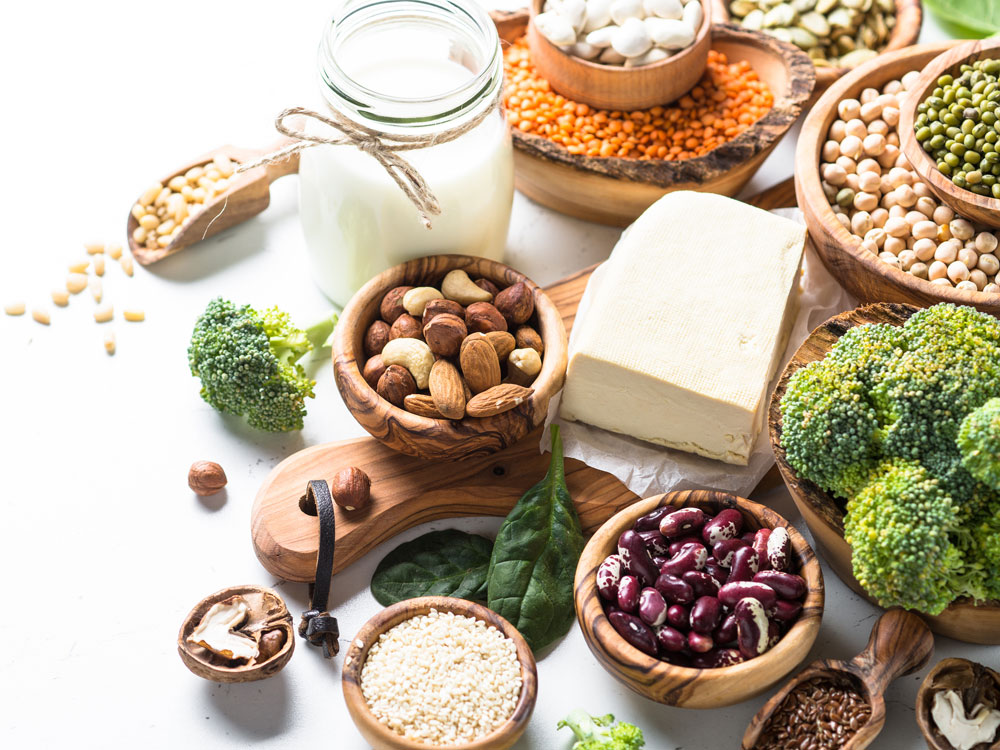Plants & Protein

But, it’s not really a wonder that people are skeptical. Between all forms of media touting protein’s role in building muscle and Big Agriculture’s promotion of animal-based foods as the holy grail of nutrition, it’s understandable that people are confused. In recent years, protein became the leading macro-nutrient to leverage in marketing food because the other two – carbohydrates and fats – were deemed bad or unsafe.
Suddenly, everyone needed more protein. If some protein is good, more must be better, or so the logic seems to go. As this informative Bloomberg article from late 2016 points out, however, too much focus on protein consumption means you will likely drop other important nutrition from your daily intake. Or you will overeat. Neither scenario is good.
Two things you should know about protein: 1) the average American eats much more protein every day than is needed (about double), and 2) there is lots of protein in plants, plus a whole host of valuable micronutrients including vitamins, antioxidants, and minerals.
Consider this: some of the largest mammals, such as elephants and gorillas and horses, eat a plant-based diet. They seem to be holding their own, at least when we humans don’t mess them up.
Plants include protein-rich items like legumes (beans, lentils, peas, peanuts) and nuts and grains. Even the frequently vilified white potato has protein in it, along with complex carbs, fiber, vitamins, and minerals. Potatoes are wholesome and healthy, if we don’t immerse them in a deep fat fryer or blanket them with fatty toppings.
So as you consider a plant-based diet and its possible contribution to your good health, don’t let food industry hype, fast food advertising, packaging gimmickry, and the latest diet trend on the glossy cover of a checkout magazine make you afraid about getting enough nutrients. Relax! Give a balanced whole food, plant-based program a try and see how you feel in a month.


